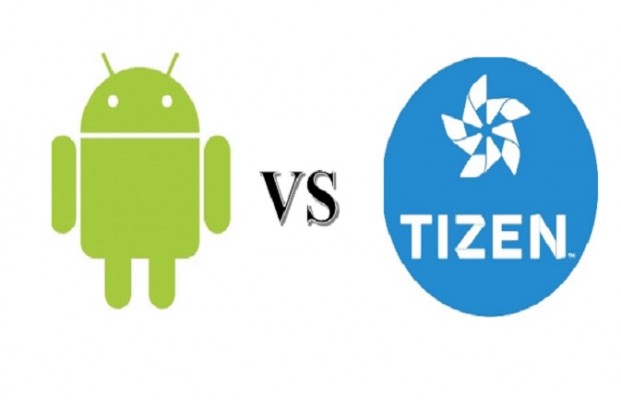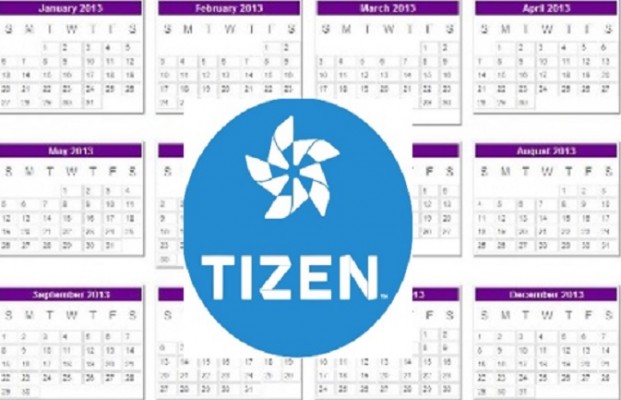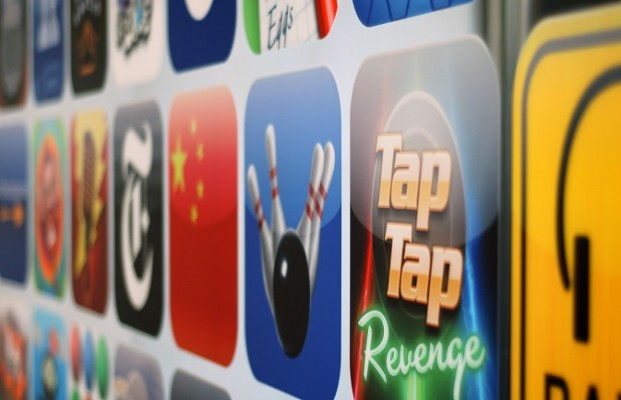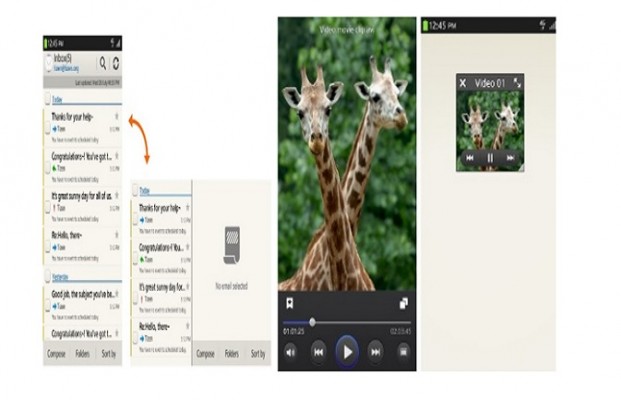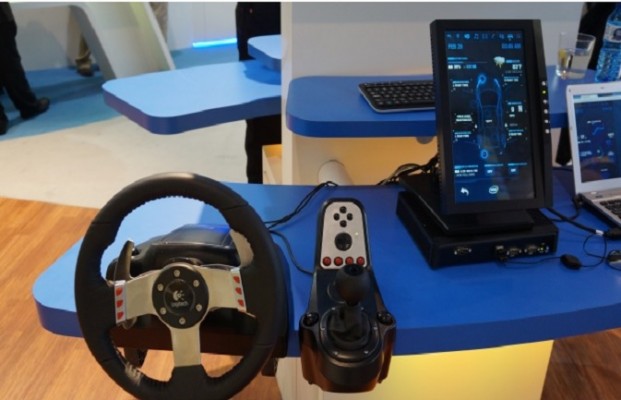Tizen OS: 10 Things to Know About Samsung’s New Android
Sign up to receive The Snapshot, a free special dispatch from Laptop Mag, in your inbox.
You are now subscribed
Your newsletter sign-up was successful
When it comes to the smartphone market there are four names that come to mind for consumers: iOS, Android, Windows Phone and BlackBerry. But that could all change in 2013 as newer operating systems attempt to rival the likes of Apple, Google and other industry big shots.
Enter Tizen, an open source Linux-based operating system that seeks to give Android a run for its money. Tizen has been in the works since early 2012 but has garnered attention recently thanks to Samsung’s involvement and interest in the platform. Reports have suggested that Korean electronics giant will launch a flagship smartphone based on Tizen in the near future, but the OS is still largely unknown to the masses. Here’s a roundup of 10 facts and features about what could be Samsung’s new Android killer.
Based on Linux
Tizen is an open source operating system based on the Linux kernel and WebKit runtime. This means that users can obtain the source code that Tizen is based on, allowing smartphone owners to tinker with and alter a device’s software. Android, Firefox OS and Ubuntu are also open-source, unlike Apple’s closed iOS mobile operating system.
MORE: Top 10 iPhone Alternatives
Backed by Intel and Samsung
The Tizen OS is a project within the Linux Foundation and is overseen by a Technical Steering Group that consists of Intel and Samsung. The OS came to be when Intel joined Samsung in 2011 after both had abandoned their respective previous projects, MeeGo and LiMo. Tizen had been perceived as a rebranding of MeeGo, but not according to Carsten Haitzler, a software engineer known for leading the development of Linux’s Enlightenment window browser. A post written by Haitzler on Tizen’s general questions page in 2011 states that the software is a “merge between Samsung LiMo/SLP and MeeGo work, not simply a ‘let’s take Meego and give it a new name.’”
MORE: Best & Worst Smartphone Brands 2013
Possible 2013 Release Date
You’ll be hard pressed to find a smartphone running on Tizen at the moment, but the OS has been rumored to make a debut for quite some time. On its official web page, Tizen claims that smartphones powered by the OS will feature 3D window effects, advanced multimedia, location-based services, and just about every other feature you’ll find on today’s smartphones.
Sign up to receive The Snapshot, a free special dispatch from Laptop Mag, in your inbox.
Although Tizen isn’t ready for the mainstream market just yet, Samsung has said numerous times that it plans to launch a flagship based on the OS very soon, perhaps in the late 2013-early 2014 time frame. Tizen isn’t on any available phones just yet, but we have seen purported leaks of Tizen 2.1 running on a Samsung phone labeled GT-i8800.
MORE: How to Root Android Phones and Tablets
Samsung's Android Alternative?
It’s no secret that Samsung’s Android handsets have been widely successful. However, numerous reports have suggested that Samsung has been itching for an OS with more creative control, seeking to wean itself off Google. In a recent interview, Samsung’s own JK Shin told CNET that Tizen is more than just a side project, but also a “simple alternative for Android.”
This doesn’t come as much of a surprise, considering Samsung has been taking steps to add its own brand to the mobile OS on its smartphones. Implementing a relatively unknown OS such as Tizen onto a flagship device like the Galaxy S4 could give Samsung the opportunity decrease reliance on one of its competitors. Samsung smartphones come with a heavily skinned version of Android known as TouchWiz, which puts Samsung’s own spin on the Android interface and includes its own Samsung Apps store.
The App Challenge
There’s no denying that Samsung and Intel are pushing for developer support for their Tizen platform, especially when the companies are willing to put $4 million toward app creation. As part of the app development challenge, developers have until Nov. 1 to submit apps for the Tizen OS. Judging will take place between Nov. 4 and 5 and the winners will be unveiled in December.
The developer behind the best game will be awarded $200,000, while the best non-gaming app will receive $120,000. The top 10 HTML 5-based applications will receive $50,000 each, and the total $4.04 million allotment will be spread across nine categories and 50 developers. Tizen’s app page is blank at the moment, but with hundreds of thousands of dollars hanging in the balance we’re interested to see how it grows.
MORE: 25 Best Android Apps
Emphasis on HTML 5
Tizen encourages its developers to write apps in HTML5, which the most recent iteration of the HTML standard that debuted back in 2010. Other operating systems such as Android and iOS use Java and Objective-C as their primary coding languages. HTML5 essentially enables a smoother Web browsing experience for mobile devices, such as the ability to display embedded videos or play music without an additional plugins and save data offline.
MORE: The Biggest Smartphones in the World
Similar to Android Yet Different
Like most smartphone user interfaces, Tizen’s OS seems to feature core components such as the home screen, notification panel, and lock screen. While the Tizen OS shares some Android design elements, there are also some fundamental differences.
For example, the Tizen home screen displays applications just like an app drawer would, rather than the Android home screen which displays the time and only one row of icons at the bottom of the screen. While the home screen may differ, drop down menus and app menus have the same grayish boxy look as those in Android do. Like Google’s mobile OS, there’s a notification bar that can be accessed by swiping down from the top of the screen. Of course, this is based on a prototype of the Tizen OS that was showcased at Mobile World Congress in Barcelona, so the final design is subject to change.
Multi-Window View, Floating Browsers
Based on what we can gather from the app design guidelines posted on Tizen’s developer page, Tizen is likely to come with a multi-window feature similar to the Q Slide feature found on newer LG devices. Essentially, Tizen apps would be able to exist in either “full window” form or a “mini window” mode that would create a “floating browser” effect. Multi window views and floating browsers aren’t new, but they’re certainly not standard smartphone features that come built in to every smartphone’s UI.
At the same time, Tizen’s website details another design aspect dubbed “Multi-window,” which is similar to a feature of the same name found on Samsung smartphones. This feature lets you view apps in a split view. However, unlike the Samsung feature, which runs two apps in separate windows on the screen, Tizen’s version displays one app in a split view. So, for instance, rather than selecting an email to read it, you can enable a split view that shows the body of your email and your inbox at the same time. Similarly, in a music app you could theoretically have the song currently playing displayed next to your playlist without having to navigate back and forth.
MORE: 12 Worst Android Annoyances and How to Fix Them
Basic Gestures
The Tizen operating system is built to interact with certain touch gestures that consist of taps, swipes and flicks among other actions. As is the case with most touch screen devices, tapping an item will select it and long-pressing will launch an app-specific option menu. Pinch to zoom, dragging and dropping icons, and flicking to quick scroll are all supported within the Tizen UI.
Not Just For Smartphones
Tizen may be touted as Samsung’s new Android alternative, but the truth is the software isn’t made just for mobile devices. At this year’s Mobile World Congress in Barcelona, Intel demonstrated an infotainment system for cars that runs on the Linux-based OS. According to Intel, this system would be able to access Google Maps for navigation, change songs stored on the system’s hard drive or output real-time information coming from your vehicle.
Tizen’s website notes that the software will eventually be designed for tablets and netbooks as well as smartphones, but it’s also slated to come to Smart TVs. This isn’t very surprising considering Samsung is a major player in pioneering the Smart TV category.

